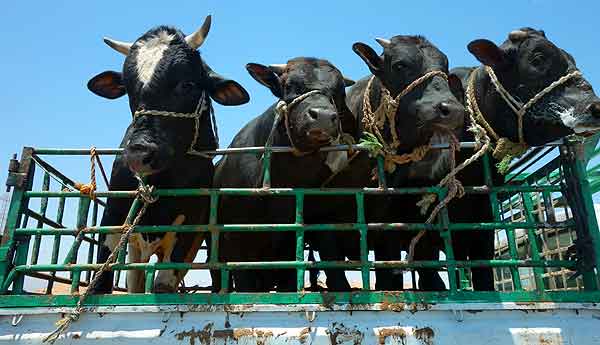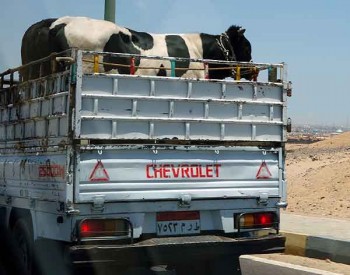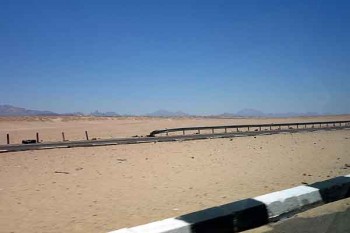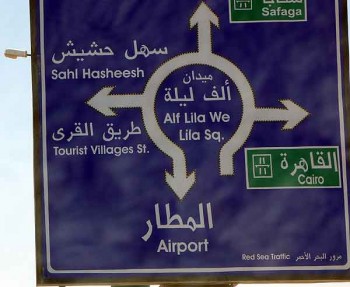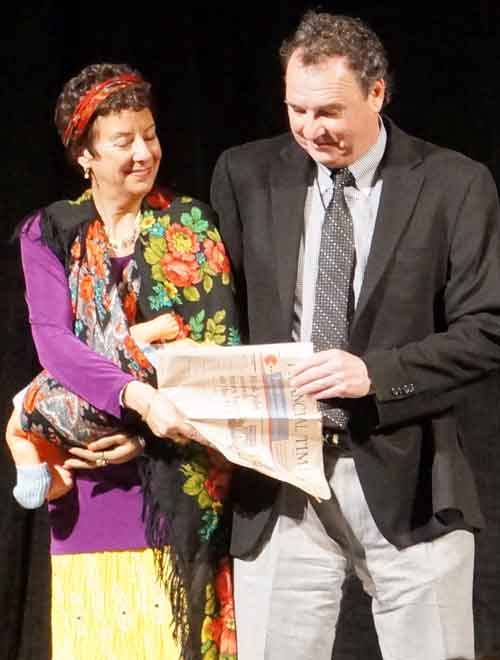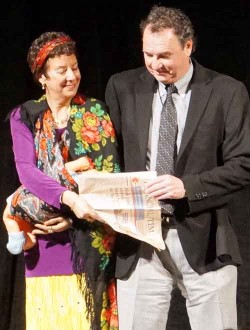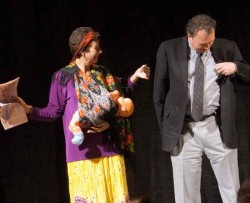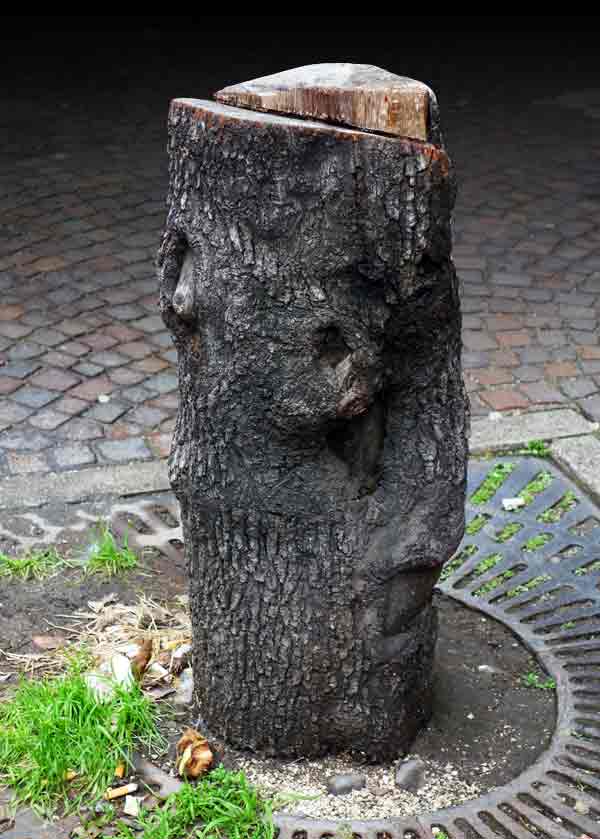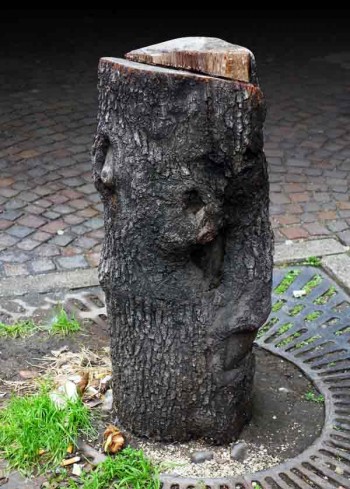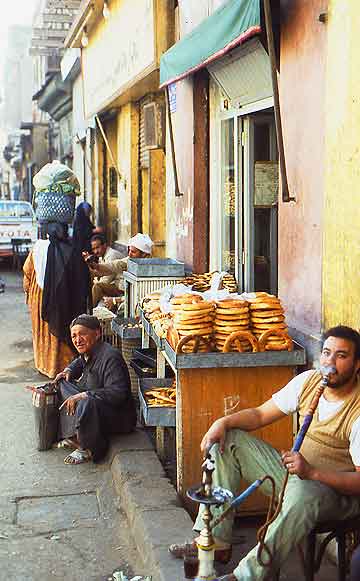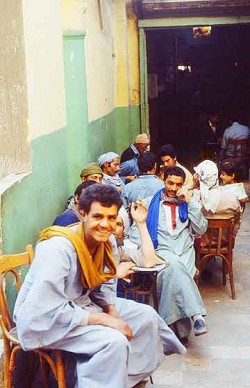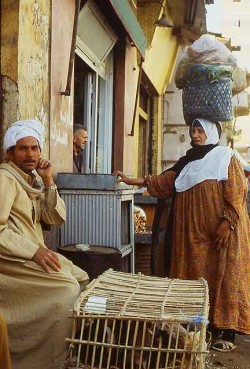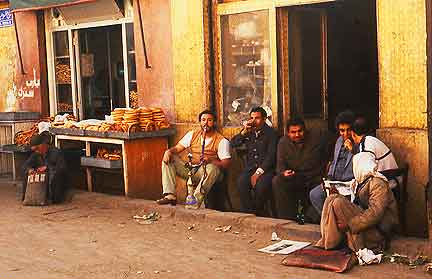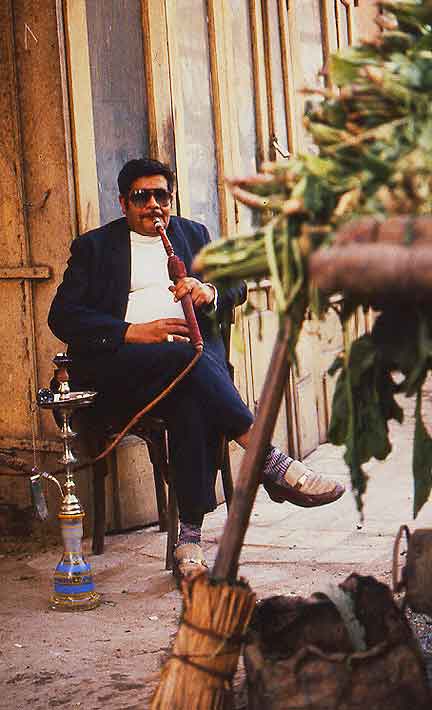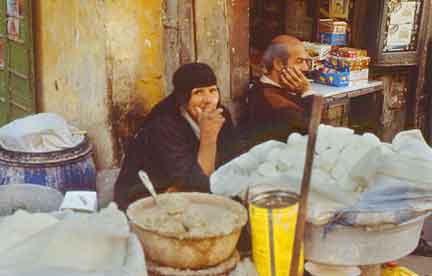
I’m mortified to remember the time I refused to shake hands with an Egyptian.
It’s a sad commentary on the state of the world when one must look at every stranger with distrustful eyes, and in some ways it defeats the whole purpose of leisure travel. Spectacular landscapes, ruins, markets, shops, and food are only the skin of a culture. Its people are its core. Around the world people are attracted to people; locals are warm and welcoming to travelers, and swell with national pride. In many countries, to refuse a gift is to insult your host. In some countries, insulting your host is provocative indeed.

After a long hot morning interviewing the Cairo police, we returned to our hotel to wash up. We then intended to visit the American Express office at the Nile Hilton, and from there, we’d hunt down an excellent Egyptian lunch at the Khan el Khalili Bazaar. Refreshed, we made our way through thick air, deafening noise, and teeming crowds to the 6th of October Bridge, which spans the Nile.
Policemen at attention stood the length of the bridge, perfectly spaced every thirty feet, rigid and regular as toy soldiers. They were armed, however, like real soldiers. I asked an important-looking officer who appeared to be supervising the formation. “Is it always like this? Are there this many officers every day?” No, President Mubarak is coming, he said. At the end of the bridge we paused and looked up to locate the Nile Hilton.

“You can’t cross the street here,” a friendly local volunteered. “If you try, the police will only stop you. Our president is coming, you see.” He was curly-headed, short, chubby, and a bit rough.
“How do we get across to the Hilton?” Bob asked.
“You must use the underpass. Come, I’ll show you.” As we turned, the entry to the underpass became obvious. We thanked the man, but he wasn’t finished with us.
“Hello,” he kept saying. “How are you? Where are you from? You like Cairo?” He offered his hand, and Bob shook it politely as the three of us walked toward the underpass.
“Lady, what’s your name?”
“Bambi,” I said, walking ahead. I smiled at him over my shoulder, hoping he’d find me friendly but in a hurry. I had no wish to offend him, but I am not fond of shaking hands with any stranger on the street.
“Hello!” he persisted. I increased my pace slightly. That turned out to be an unwise move; thoughtless and undiplomatic.

“You don’t want to shake hands with an Egyptian? I am your host! Do you think I’m dirty?”
“My wife has a cold,” Bob lied, “she doesn’t want you to get it.”
“Perhaps she doesn’t like Egyptians! What kind of visitors are you!”
I felt terrible by then, and regretted my rude and tactless behavior when I should have been on my best. But now I was concerned about the man’s escalating verbal assault. He was still walking with us and, as the underground passage loomed ahead, the chicken in me pecked holes in my nerves. I should have turned and apologized. Instead, I sped up.
I heard Bob behind me, trying to explain the transference of germs from hand to hand to mouth and the Cairene not getting it. As I entered the tunnel, Bob not far behind, the agitated man gave up and dropped us. I was relieved and ashamed at the same time.

Later, we unwound in a barely-lit alcove of the cave-like back of the elegant Khan El Khalili Restaurant. The front of the restaurant, called the Naguib Mahfouz Coffee Shop for the Nobel Prize-winning novelist, was all about unwinding. Customers slouched among pillows sucking on hookahs, dark coffee and sweet smoke scented the room, narrow shafts of harsh sunlight illuminated the thick swirling air, and waterpipes burbled like aquariums.
In the back it was quiet, private, and dramatically lit. Over little plates of olives, babaganoush, hummus, and flat bread, we reflected on the encounter. It could have gotten out of hand; we were lucky. But why had I behaved so badly? What had repelled me from the one-man welcome committee? Was I just too street-smart, smelling a scam? Had years of thief-patrol put me off all humanity?

No, I lacked any credible excuse. I had just washed, was on my way to eating lunch with my hands, and just plain didn’t want to shake hands. Shame on me. I felt miserable, but allowed myself to be soothed by the atmosphere and luscious meal.
Encounters with locals can offer the deepest, longest-lasting memories of a trip. But when cultures collide, sensitivity and caution must be in balance. Judgment is critical, but how can we determine what our own behavior should be, with little understanding of foreign sentiment? A majority of Americans, cocooned as we are in our huge world of a nation, have a myopian global perspective, as limited as that of an Amazonian tribesman or a Mongolian herder. Our collective ignorance of political issues stuns smaller nations, which can’t afford to know only their own business.
Our naiveté may occasionally lead to confrontations such as mine with the Egyptian. It can also foster dangerous hostility, and it allows us to walk into scams, swindles, and set-ups.
Excerpt from Travel Advisory: How to Avoid Thefts, Cons, and Street Scams
Chapter Three: Getting There—With all your Marbles


